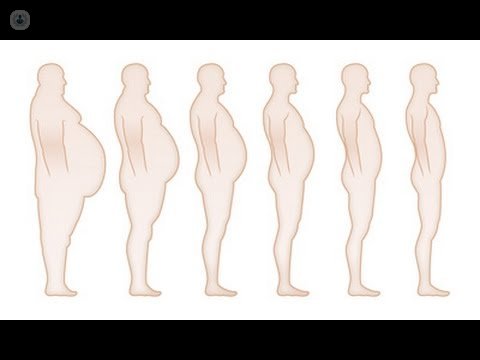How to treat obesity surgery?
Written by:
 What is obesity and who suffers?
What is obesity and who suffers?
Obesity is a serious disease that affects both men and women. It is known that the patient suffers when calculating your body mass index (BMI) and it exceeds 30. Dietary habits, physical inactivity and other conditions make much of the population vulnerable to obesity.
Specialists use a parameter to determine whether a person has or not obesity. This one is what is known as IMC. To calculate this, divide the weight in kilograms by height in meters squared (BMI = kg / m2). There are different diagnoses obesity according to BMI of the patient:
> 30 = Obesity
> 35 = Obesity Type II
> 40 = Morbid obesity
It is important to see a specialist in General Surgery doubts arise to the disease. Obesity causes other serious diseases such as respiratory failure, sleep apnea, heart disease, among others. Without neglecting the great relationship between it and the appearance of various types of cancer.
Medical or surgical treatment, what is better?
Scientific evidence dictates that not all obese patients must be operated. From the Surgical Institute of Andalusia, are established as priority those patients with a BMI greater than 35 and an associated disease, and those with a BMI over 40 with no associated disease.
However, you must first apply a medical treatment that combines a change in lifestyle of the patient, diet and exercise. However, there is a certain weight threshold at which it is not possible, despite undergoing strict diets, keep losing.
When this happens, we restrictive surgical techniques: gastric sleeve or vertical gastrectomy and gastric bypass. Restrictive techniques are named as limit the amount of food eaten or absorption of nutrients by the body.
After bariatric surgery, how is postoperative?
As the operation is performed laparoscopically, the pain is minimal and fairly rapid recovery. The next day, the patient will begin to walk. Between the second and third days will begin to take small quantities of liquids and the fourth day will be discharged. You can join their work within two weeks, and from the first day of discharge you are advised to walk at least an hour a day
Does the patient can return to being obese?
Scientific evidence has shown that the only treatment capable of maintaining weight loss over time is bariatric surgery. The important thing is to make a correct selection of the patient and detect any disorder that could guarantee poor performance.
For this, the team includes a clinical psychologist specializing in eating disorder, which may help the patient before, during and after surgery. With proper monitoring and rehabilitation, the patient hardly falls back on obesity.


